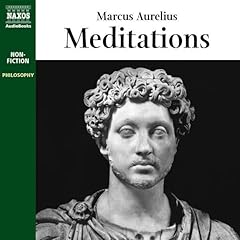
Beyond Good and Evil
No se pudo agregar al carrito
Add to Cart failed.
Error al Agregar a Lista de Deseos.
Error al eliminar de la lista de deseos.
Error al añadir a tu biblioteca
Error al seguir el podcast
Error al dejar de seguir el podcast
 Exclusivo para miembros Prime: ¿Nuevo en Audible? Obtén 2 audiolibros gratis con tu prueba.
Exclusivo para miembros Prime: ¿Nuevo en Audible? Obtén 2 audiolibros gratis con tu prueba.Compra ahora por $19.10
-
Narrado por:
-
Alex Jennings
-
Roy McMillan
Continuing where Thus Spoke Zarathustra left off, Nietzsche's controversial work Beyond Good and Evil is one of the most influential philosophical texts of the 19th century and one of the most controversial works of ideology ever written.
Attacking the notion of morality as nothing more than institutionalised weakness, Nietzsche criticises past philosophers for their unquestioning acceptance of moral precepts. Nietzsche tried to formulate what he called "the philosophy of the future".
Alex Jennings reads this new translation by Ian Johnston.
Download the accompanying reference guide.©2008 Naxos Audiobooks (P)2008 Naxos AudiobooksLos oyentes también disfrutaron:




















Featured Article: All the Audiobooks in "The White Lotus"—and What Listeners Really Thought
For most, a "beach read" tends to be easy to digest. On HBO’s new hit series The White Lotus, however, that standard is questioned. Throughout the show, characters consume challenging texts from Nietzsche to Malcolm Gladwell while lounging at the luxury resort. If you are looking for an opportunity to up your game for your next beach visit, look no further than this list of books we spotted in the show—in audio, of course, to help them go down easier.
Las personas que vieron esto también vieron:


















You choose good or evil
Se ha producido un error. Vuelve a intentarlo dentro de unos minutos.
Some books are natural choices for Audible, but this one is a stretch. Nietzsche's style is not easily consumable. Each point is nuanced and only goes down well if the listener has time to ponder on it a bit. Nietzsche's writing style is nuanced. Audible is a bad platform for its presentation.
A Lousy Choice for Audible
Se ha producido un error. Vuelve a intentarlo dentro de unos minutos.
great philosophical work
Se ha producido un error. Vuelve a intentarlo dentro de unos minutos.
execlent.. well worth it
Se ha producido un error. Vuelve a intentarlo dentro de unos minutos.
Jordon Peterson
Se ha producido un error. Vuelve a intentarlo dentro de unos minutos.



